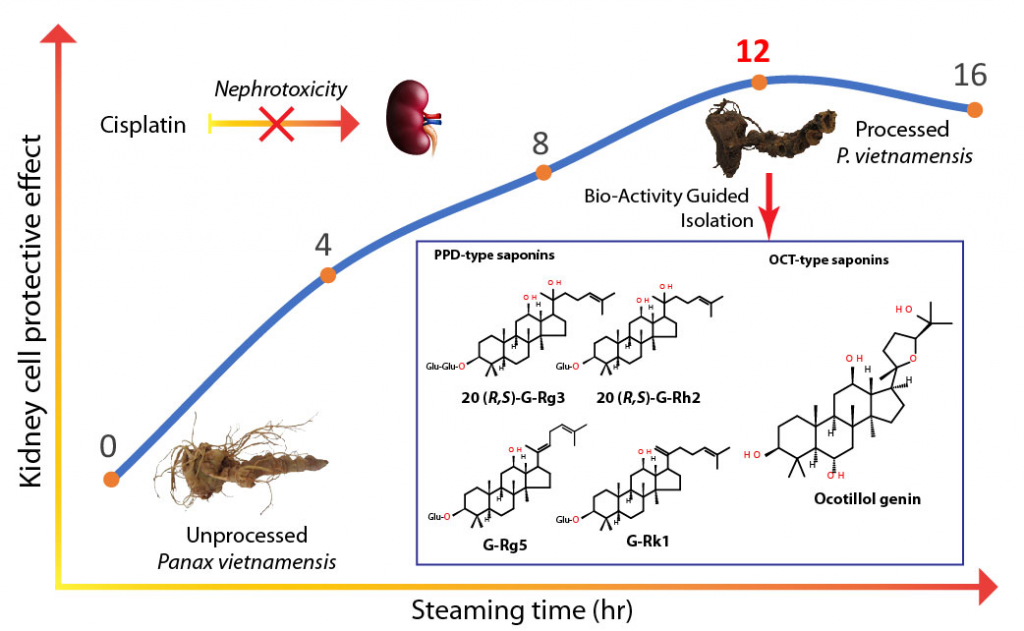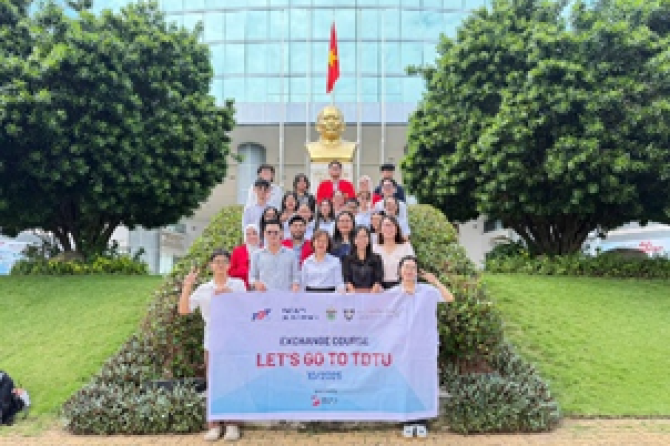Increase in Protective Effect of Panax vietnamensis by Heat Processing on Cisplatin-Induced Kidney Cell Toxicity

Cisplatin is a platinum-based anticancer agent used for treating a wide range of solid cancers. One of the side effects of this drug is its severe nephrotoxicity, limiting the safe dose of cisplatin. Therefore, many natural products have been studied and applied to attenuate the toxicity of this compound. In this study, we found that steamed Vietnamese ginseng (Panax vietnamensis) could significantly reduce the kidney damage of cisplatin in an in vitro model using porcine proximal tubular LLC-PK1 kidney cells. From processed ginseng under optimized conditions (120 °C, 12 h), we isolated seven compounds (20(R,S)-ginsenoside Rh2, 20(R,S)-ginsenoside Rg3, ginsenoside Rk1, ginsenoside-Rg5, and ocotillol genin) that showed kidney-protective potential against cisplatin toxicity. By comparing the 50% recovery concentration (RC50), the R form of ginsenoside, Rh2 and Rg3, had RC50 values of 6.67 ± 0.42 µM and 8.39 ± 0.3 µM, respectively, while the S forms of ginsenoside, Rh2 and Rg3, and Rk1, had weaker protective effects, with RC50 ranging from 46.15 to 88.4 µM. G-Rg5 and ocotillol, the typical saponin of Vietnamese ginseng, had the highest RC50 (180.83 ± 33.27; 226.19 ± 66.16, respectively). Our results suggest that processed Vietnamese gingseng (PVG), as well as those compounds, has the potential to improve kidney damage due to cisplatin toxicity.
Fulltext here.






